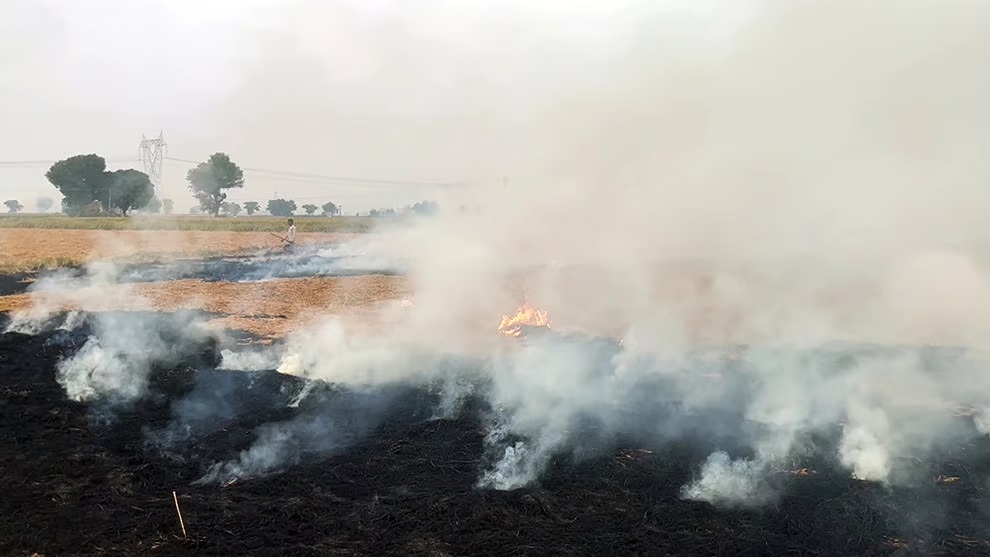India calls for cross-border collaboration with Pakistan,Bangladesh to tackle trans boundary pollution
| Date :14-Nov-2024 |

BAKU :
DESCRIBING pollution as a
“transboundary”issue,Indiahas
urged nations, especially
PakistanandBangladesh,totake
proactive and collaborative
measures to manage and mitigateairpollutionacrossborders.
This appeal comes as northern India has been witnessing a
riseinpollutionwithNewDelhi’s
air quality hitting a ‘severe’ level for the first time this season,
with the Air Quality Index (AQI)
reaching 418, on Wednesday.
Ministers and heads of delegationsfromsixoftheeightcountries that share theEarth’s tallest
cryosphere zone met at a meeting hosted by Bhutan’s Prime
MinisterTsheringTobgayonday
two of the global climate conference COP29 in Azerbaijan on
Tuesday,InternationalCentrefor
Integrated Mountain
Development (ICIMOD) said in
a statement on Wednesday.
ICIMOD is a regional intergovernmental learning and
knowledge sharing centre.
In the meeting, India highlighted air pollution as a pressing and shared challenge within the Indo-Gangetic Airshed.
“Most of our countries fall
underthesameair-shed,i.e.,the
Indo-Gangetic Airshed.This is a
transboundary issue. All countries must work together to
address air pollution,” said
Naresh Pal Gangwar, Joint
Secretary, Ministry of
Environment and Forest and
Climate Change.
He urged nations, particularly Pakistan and Bangladesh, to
take proactive, collaborative
steps tomanageandmitigateair
pollution across borders, the
statement said.
Earlier this month, Pakistan
blamed winds from India for
worsening air quality in Lahore
and taking the smog to“dangerous levels”.
Tuesday’s meeting took place
as scientists issued fresh warnings about unprecedented economic and environmental losses from ice and snow melt, with2023 setting records for cryospheric degradation.
The Hindu Kush Himalaya(HKH) region, often referred toas Asia’s “water tower”, suppliesfresh water to nearly two billionpeople across Asia. Yet, climatechange-induced warming hasaccelerated glacial melt, threatening water, food, and energysecurityformillionsintheregion.
Bhutanese Prime MinisterTobgayemphasisedtheurgency,
saying,“TheHKHregionisabiodiversity hotspot and a repositoryofsomeoftheworld’slargestice reserves. With global temperatures rapidly nearing the1.5°Cthreshold,wemustactnow,
collectively, to mitigateimpending disasters thatwill affect bothmountain populations and 1.6billion people living downstream.”


